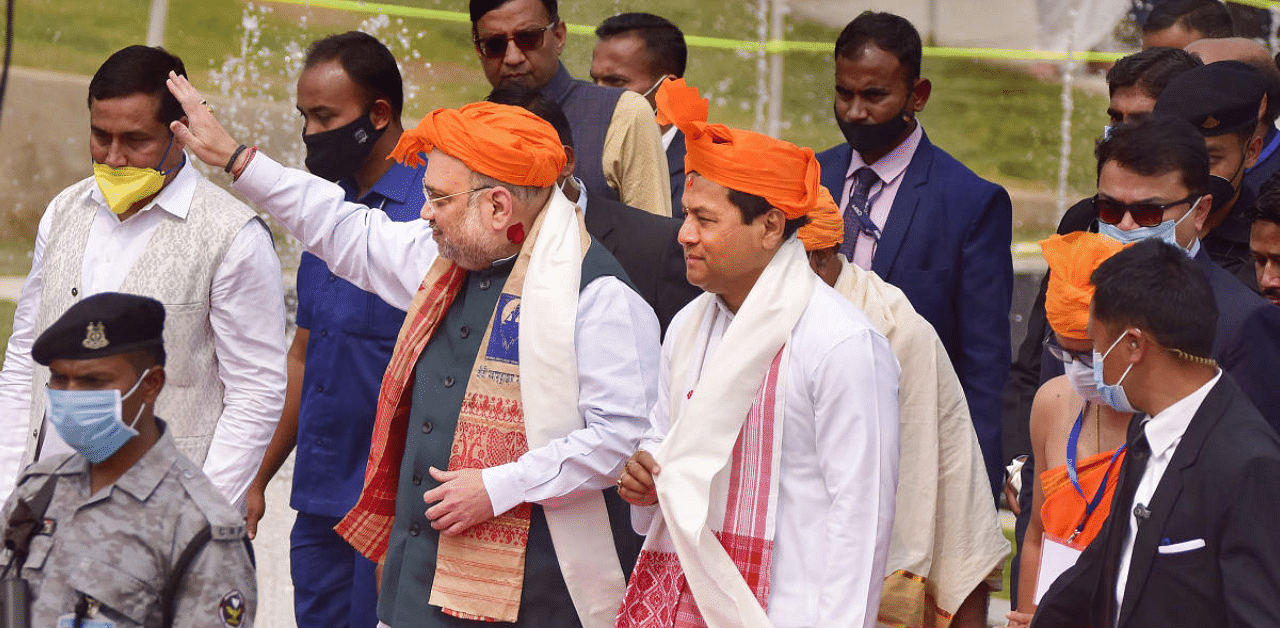
Assam is poised for an electoral battle among three major alliances, mainly out of the "ideological stand" regarding the Citizenship Amendment Act (CAA).
The ruling BJP has decided to renew its ties with Asom Gana Parishad (CAA), its partner since 2016 Assembly elections. But it has replaced its another partner Bodoland People's Front (BPF) with United People's Party Liberal (UPPL) in the Bodo heartland.
The anti-CAA stand has led the opposition Congress to stitch a "grand alliance" with Badruddin Ajmal-led All India United Democratic Front, left parties and another small regional force. Two new regional parties, Assam Jatiya Parishad (AJP) and Raijor Dal, born out of the anti-CAA agitation in 2019, however, did not join the "grand alliance" and decided to fight the elections together. AJP is led by young Lurinjyoti Gogoi, the former general secretary of influential All Assam Students' Union and Raijor Dal is headed by Akhil Gogoi, who is in jail since the anti-CAA agitation. Akhil is facing the charge of sedition.
BPF, which won 12 Assembly seats in 2016, however, has not made its stand clear whether they will contest on their own or will join the opposition alliances.
In 2016, BJP had bagged 60 of 126 Assembly seats and formed its first government along with AGP (14) and BPF (12), its two pre-poll alliance partners. Congress, which was in power for the three consecutive terms, won only 26 seats followed by AIUDF (13) and Independent (1).
Although BJP won 9 out of 14 Lok Sabha seats in 2019, the anti-CAA agitation that turned violent in December 2019 pushed the saffron party in a spot. Indigenous communities fear that the CAA would reduce them into minorities by giving citizenship to a large number of post-1971 Hindu Bengali migrants from Bangladesh. This could pose a threat to their identity and culture. Non-completion of the NRC exercise is also seen as a factor against BJP's polls prospect this time.
The Opposition alliances are trying hard to project BJP as a threat to "Assamese identity." Countering them, BJP leaders are calling both Congress and AIUDF "protector of infiltrators."
The saffron party claims that the CAA was no longer a poll issue and people would vote for its development work since 2016.
The BJP-led government, on the other hand, has launched several schemes including the Orunodoy Scheme under which Rs. 830 are being transferred every month to bank accounts of 22 lakh "disadvantaged" families. It has also hiked the daily wage of tea garden workers by Rs. 50 as tea garden votes play a key role in at least 40 seats.
BJP and its allies have set a target of 100 plus seats this time. The opposition "grand alliance" says it will win more seats than the ruling alliance. Price rise, floods, and Scheduled Tribe status to six ethnic communities have become other major issues against the BJP.